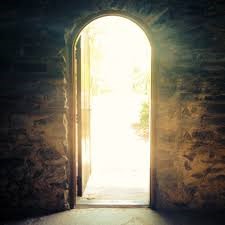A Water from the Well blog post, Shabbat Hagadol
Written by Rabba Kaya Stern-Kaufman

The Shabbat before Passover is given a special name: Shabbat Hagadol, the great Shabbat. One explanation for this special name is that it is lifted from a verse we read in the special haftarah for this Shabbat which directly precedes Passover.
הִנֵּה אָנֹכִי שֹׁלֵחַ לָכֶם אֵת אֵלִיָּה הַנָּבִיא לִפְנֵי בּוֹא יוֹם יְהֹוָה הַגָּדוֹל וְהַנּוֹרָא׃
Hinei anokhi sholeiach lakhem et Eliyah Hanavi lifnei bo yom Adonai hagadol vehanora.
“Behold, I send you Elijah the Prophet before the coming of God’s great and awesome day. (Mal. 3:23)
What is the great day, before which Elijah arrives? It is taught that Elijah will herald the Messiah on that great and awesome day at the time of the redemption of the world. And so on Pesach we end our seder, our evening of reliving the Egyptian redemption, with our hope for the full monty; the redemption of our broken world. As we open the door for Elijah, we create an opening, ritualizing an opening in ourselves. We welcome in the potential for transformative change, for a greater redemption, for freedom and peace to be manifested in global proportions.
But here, in this verse from which we derive the ritual, we see a very personal, intimate expression of healing. The verse does not speak in global proportions but rather describes a healing within each family, a healing between the generations. The full selection reads as follows:
הִנֵּה אָנֹכִי שֹׁלֵחַ לָכֶם אֵת אֵלִיָּה הַנָּבִיא לִפְנֵי בּוֹא יוֹם יְהֹוָה הַגָּדוֹל וְהַנּוֹרָא׃ וְהֵשִׁיב לֵב־אָבוֹת עַל־בָּנִים וְלֵב בָּנִים עַל־אֲבוֹתָם פֶּן־אָבוֹא וְהִכֵּיתִי אֶת־הָאָרֶץ חֵרֶם׃׃
Hinei anokhi sholeiach lakhem et Eliya Hanavi lifnei bo yom Adonai hagadol vehanora. “Behold, I send you Elijah the Prophet before the coming of God’s great and awesome day.
V’heishiv lev avot al banim v’lev banim al avotam… He will turn the heart of parents to their children and the children’s hearts to their parents…” (Mal. 3:23).
This ancient verse acknowledges the perennial wounding that occurs in both generations when it says, “He will turn the heart of parents to their children and the children’s hearts to their parents…”
How rare it is to meet a family in which there is no one who feels estranged or alienated from other members of the family, especially in the relationships between parents and children.
In Hebrew, the land of Egypt is called Mitzrayim, meaning a place of constriction. Passover celebrates the awesome potential to move out of an oppressed condition into freedom. Oppression is experienced in many different ways, including emotional constriction. Sometimes we may feel as if there is a padlock on the heart. In our seder ritual, as we physically open the door to Elijah the prophet, we might also call upon the Elijah potential to open up the constrictions of the heart that perpetuate intergenerational wounding. What if the freedom journey could be an opportunity to free ourselves from the bondage of family wounds?
Whereas we begin the seder with a description of four types of children and four different pedagogical approaches for sharing the story of our people, we end the seder (opening the door for Elijah) with the very real acknowledgement that the higher purpose of the whole story is first to bring families together and then to re-establish family harmony as a microcosm of world peace.
Must we wait however, for Elijah and the Messiah to create such a healing?
Might we reconsider the power of the Elijah image as one that holds this very specific potential? Opening a closed door requires engagement. It is not a passive process. If the door has been shut for too long, it may require more work to open it. Likely, it requires tenacity, much like the spring bud that weathers the snowstorm of April and yet declares, I am still here and I will open and make myself vulnerable.
This is the season of new beginnings, new openings, as delicate buds push through the boundaries of wood and soil. After the long winter, each and every year, it feels like a miracle… because it is. The miracle of rebirth is embedded in the nature of life. And each new blossom testifies to the regenerative forces that lie waiting in every relationship.
Elijah the prophet, we are no longer waiting; we are summoning. We call upon your energy, your ko-ach, as herald of transformation, to support us in this process of softening, opening, and rebuilding relationships.
With blessings for a Pesach of reconnection and healing,
Rabba Kaya